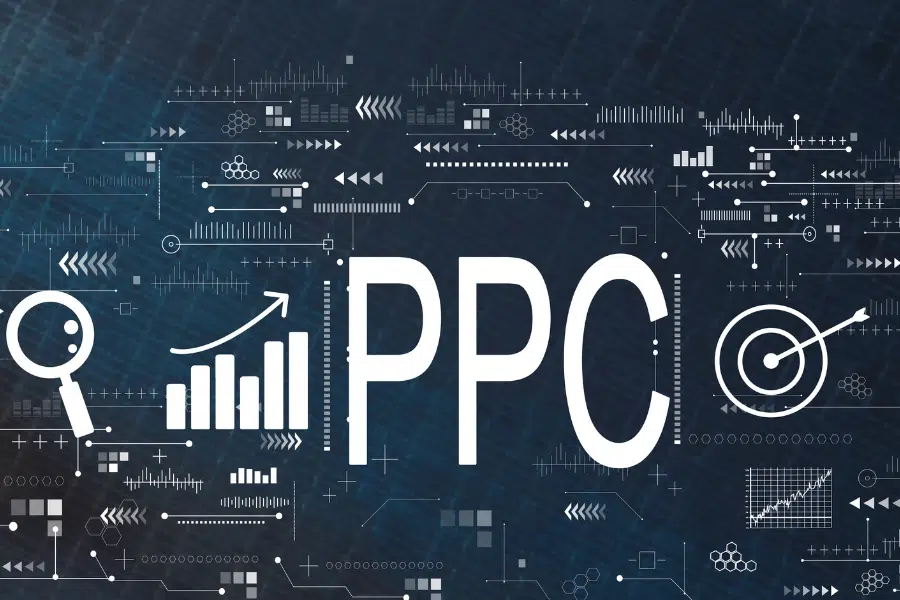
Patients seek care options online, but what is the best approach to reach them where they search? Search engine optimization (SEO) and pay-per-click (PPC) are at the forefront of search engine marketing — being where consumers are when they search for services online. This blog explains SEO vs PPC to better inform your healthcare digital marketing strategy.
What Is the Difference Between SEO and PPC in Digital Marketing?
SEO (also known as “organic” search) and PPC (also known as paid search) are both core strategies for being found in online searches, Google especially. Either approach helps your medical practice end up in search results, but each method works differently.
In short, the difference between organic and paid search is that SEO (organic) focuses on best practices for the website and its content while PPC (paid search) leverages Google’s advertising channel. SEO vs PPC in terms of results is based on how Google prioritizes placement on the search engine results page (SERP) with paid search moving to the top of the page, and organic links being further down. This also implies that PPC gets faster results, whereas SEO takes time to build gains.
What Is Search Engine Optimization (SEO)? Building Long Term Web Presence
Search engine optimization (SEO) is a digital marketing strategy managing all the factors that help boost a website’s visibility in organic search results. Healthcare SEO content is crafted to match what patients are searching for related to the care services provided by a medical practice. SEO is set up for securing a competitive edge long term, targeting specific, less competitive keywords
A medical practice SEO success strategy includes keyword research, optimizing pages, maintaining links, and making technical improvements that meet Google’s protocols for “web crawling.“. It’s an ongoing process of managing your content and website structure so that Google will include the website in top search results for multiple patient search terms.
What is Pay-Per-Click (PPC)? Achieving Immediate Visibility and Targeted Reach
PPC is called pay-per-click because the advertiser pays every time their ad is clicked in a Google search, effectively allowing you to buy visits to your website. PPC fast tracks visibility in search results for medical practices for an immediate boost in online presence.
The advantage of PPC is the ability to target specific demographics and keywords through paid ads, creating a way to gain placement for those coveted competitive keywords. A medical practice PPC success strategy includes keyword research and bidding, creative ad creation, and precise audience targeting. Expertise in platforms like Google Ads is needed for money spent on PPC marketing to pay off — ensuring that your ads effectively target the right audience and optimize your return on investment.
Pros and Cons of SEO versus PPC
Viewing a side-by-side comparison of SEO vs PPC encourages a better understanding of how each works to fuel your online presence as a medical practice. The following sections outline the key differences between PPC and SEO.
The Strengths of SEO and PPC
SEO offers a spectrum of advantages, including long-term visibility, brand credibility, cost-effectiveness, and a steady flow of consistent traffic. Beyond these benefits, SEO plays a crucial role in building user trust and effectively targets influential stages of the patient journey. One of its standout features lies in the generation of continued traffic, where gains in online presence can be preserved once a high search ranking is achieved.
On the other hand, PPC is best known for its immediate results, precise targeting, and suitability for specific digital strategy goals. The advantage of rapid A/B testing and honed audience targeting in PPC enhances its effectiveness, particularly in short-term or targeted marketing efforts. Together, these strategies provide a comprehensive approach to digital marketing, catering to both long-term goals and immediate visibility needs.
The Drawbacks of SEO and PPC
SEO presents challenges such as an ongoing time investment in maintenance and a need for continued adjustments, especially when Google rolls out updates that impact rankings a website has held for a long time. Juggling many factors that impact search ranking for those target keywords paired with the time it takes to finally see results calls for patience and commitment.
PPC also creates a few obstacles for healthcare marketers, mainly the fact that it is generally dependent on a substantial advertising budget, especially when the keywords needed to be competitive in your local market are at a high cost per click. Ensuring that the money spent on these campaigns is worth the compounding costs calls for strategies that are often advanced for inexperienced marketers. Another aspect to consider with paid search is that once the campaign funds are paused, that top ranking is lost.
What is Right for Your Marketing Strategy? Utilizing Both Methods
Is SEO better than Google Ads? While there are many differing opinions among healthcare marketing experts on which is better when comparing PPC vs SEO, most can agree that online visibility is at its strongest when effective strategies are active for both.
When your healthcare brand is shown up and down the search results page, turning up for several of the search terms they use, it’s quite difficult for patients to miss you. Having both a successful paid search placement and robust organic search rankings does just that, yielding a solid — perhaps even dominant — online visibility.
Tips on Getting Better Healthcare Search Engine Marketing Results by Using SEO and PPC in Tandem
By aligning efforts and leveraging the strengths of each approach, your healthcare brand can dominate search engine results to expand your reach and appeal to potential patients. Aspects of SEO and PPC integration to refine your search engine marketing strategy are:
- Keyword alignment – Ensure that keyword strategy for your paid campaigns is in concert with your target keywords for your organic strategy.
- Consistent messaging – While there is more of an emphasis on grabbing attention with paid search communications, it is best that the wording does not veer too far from the website content, as stark differences can confuse your target audience.
- Alignment with teams – Digital marketing work is often divided up where one team handles the paid campaigns while another manages the SEO, and the better they can coordinate toward reaching your target audience, the more successful your digital outreach will be. For example, if your website team announces a promotion, a paid ads campaign can help it succeed.
- Optimized landing pages – A core best practice for PPC is to have a landing page tied to your campaign so there is a smooth transition to the next step in the conversion process, such as requesting a new patient appointment. As with consistent messaging, it is best when landing pages match the medical practice website branding.
- Consistent tracking – Having a framework to monitor the performance of both PPC and SEO will give you plenty of data insights to manage your digital marketing efforts, which should also include a way to see how well they complement one another in terms of the overall success of your search engine marketing strategy.
Harnessing the Power of SEO and PPC for a Competitive Advantage
By integrating SEO and PPC, practices can establish a dominant online presence, capturing their target audience’s attention throughout the patient journey. Developing a synergistic SEO and PPC strategy will give your medical practice the online reach it needs to be competitive in the market and requires expertise and continual optimization to be successful.
At iHealthSpot, we have extensive experience working with medical practices across specialties, utilizing the most effective SEO and PPC techniques. Our team will craft a customized strategy that combines the strengths of both, helping you differentiate yourself, attract a larger online audience, and convert them into patients. Contact us to learn more about how search engine marketing can help your medical practice gain the competitive edge it deserves.










